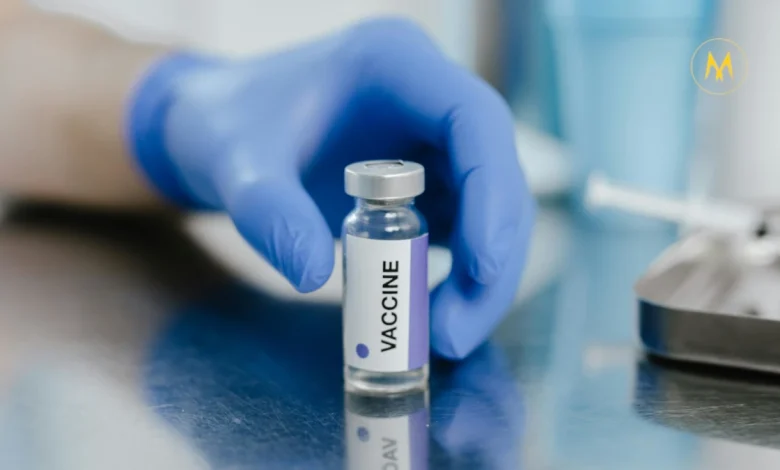FDA Restricts COVID-19 Vaccine Access in the U.S.: What You Need to Know in 2025
FDA Narrows Access to COVID-19 Vaccines in 2025

The landscape of COVID-19 vaccination in the United States has shifted dramatically in 2025. For the past several years, vaccines were available to nearly everyone, from seniors to children. That open access has now changed. The Food and Drug Administration (FDA) recently restricted eligibility for updated COVID-19 vaccines, sparking heated debate among doctors, parents, and policymakers.
This new policy affects millions of Americans. Seniors aged 65 and older can still receive the vaccines without any conditions. However, people under 65 now face stricter rules. Only individuals with high-risk medical conditions qualify for the shots. Healthy children, teenagers, and young adults no longer have the same open access to vaccination.
These changes raise serious questions about public health, equity, and personal protection. In this article, we will break down what the FDA’s decision means, who can get vaccinated in 2025, why experts are divided, and how this move impacts families across the country.
Why Did the FDA Restrict Vaccine Access?
The FDA says the decision is based on new safety reviews and the current state of the pandemic. Officials argue that most healthy younger people do not face severe outcomes from COVID-19. Therefore, broad vaccination may not be medically necessary. Instead, priority has shifted to seniors and high-risk groups who remain most vulnerable.
Critics, however, believe the restrictions create more harm than good. They argue that limiting vaccines could reduce protection in the wider population and increase outbreaks. Several medical associations, including the American Academy of Pediatrics, have expressed concerns.
Who Can Get the Vaccine in 2025?
Under the new rules:
- Seniors (65 and older): Eligible without restrictions.
- Adults under 65 with high-risk conditions: Eligible with medical approval.
- Healthy children and teenagers: No longer recommended under routine guidelines.
- Pregnant women: Removed from automatic eligibility; case-by-case approval required.
These criteria mark a sharp shift from earlier years, when vaccines were available to nearly everyone.
Public Health Concerns
ALSO READ: West Nile Virus: Global Health Risks, Symptoms, and Prevention
The policy has created mixed reactions. Some doctors support the FDA, saying the decision reduces unnecessary vaccinations and saves resources. Others warn it could lower overall immunity in the population.
COVID-19 cases have shown a slight increase in parts of the country, especially in southern and western states. With the new restrictions, experts worry the United States may struggle to manage future waves if fewer people have updated protection.
Impact on Families
For parents, the changes bring confusion and frustration. Many families want their children vaccinated for peace of mind. Others support the FDA, believing healthy kids do not need the shots anymore. Insurance coverage also remains a question. Some health plans may not cover vaccines for people who fall outside the new eligibility.
Policy and Politics Behind the Move
This decision comes under new leadership at the Department of Health and Human Services. Robert F. Kennedy Jr., the current secretary, has reshaped advisory committees and removed broad recommendations. His approach emphasizes limited vaccination and more focus on high-risk populations.
This political shift has fueled debate about science, freedom, and the role of government in public health.
What Experts Say About the Future
Most scientists agree COVID-19 is not disappearing. New variants continue to emerge. Updated vaccines are still important tools to protect vulnerable groups. However, the question remains: should protection be limited or available to everyone?
Time will tell whether this policy reduces health risks or creates new challenges.
Final Thoughts
The FDA’s decision to restrict COVID-19 vaccine access in 2025 represents a turning point in U.S. public health policy. While seniors and high-risk groups remain protected, millions of healthy individuals no longer have the same open access. The change has triggered strong opinions on both sides.
As new variants appear and case numbers rise in some states, the debate over vaccine access will continue. For now, families must navigate these new rules, consult doctors, and make informed choices. Whether this policy leads to stronger protection or greater risk is something the nation will soon discover.
Frequently Asked Questions
Seniors 65 and older are eligible without conditions. People under 65 need to have at least one high-risk health condition.
No, healthy children and teenagers are no longer included in routine recommendations. Parents must consult doctors for case-specific advice.
Conditions like diabetes, chronic heart disease, severe asthma, obesity, and weakened immune systems qualify.
The FDA says the risks of severe COVID-19 are much lower in healthy young people. The focus is now on seniors and high-risk patients.
Not always. Coverage may depend on eligibility. Some health plans may not pay for vaccines if a person does not meet the FDA guidelines.
Experts agree vaccines remain important, but they are divided on whether restrictions will protect or weaken public health in the long term.





Hi,
This is Mike from Monkey Digital,
I am reaching out regarding a great business deal.
How would you like to feature our banners on your website and link back via your personalized tracking link towards high-demand products from our platform?
This way, you make a solid 35% profit share, continuously from any purchases that are made from your audience.
Think about it, most website owners require SEO, so this is a big opportunity.
We already have 12k+ affiliates and our payouts are processed monthly.
In the past month, we reached $27280 in affiliate earnings to our partners.
If you want in, kindly contact us here:
https://monkeydigital.co/affiliates-whatsapp/
Or join us today:
https://www.monkeydigital.co/join-our-affiliate-program/
Cheers,
Mike Christopher Schmidt
Phone/whatsapp: +1 (775) 314-7914